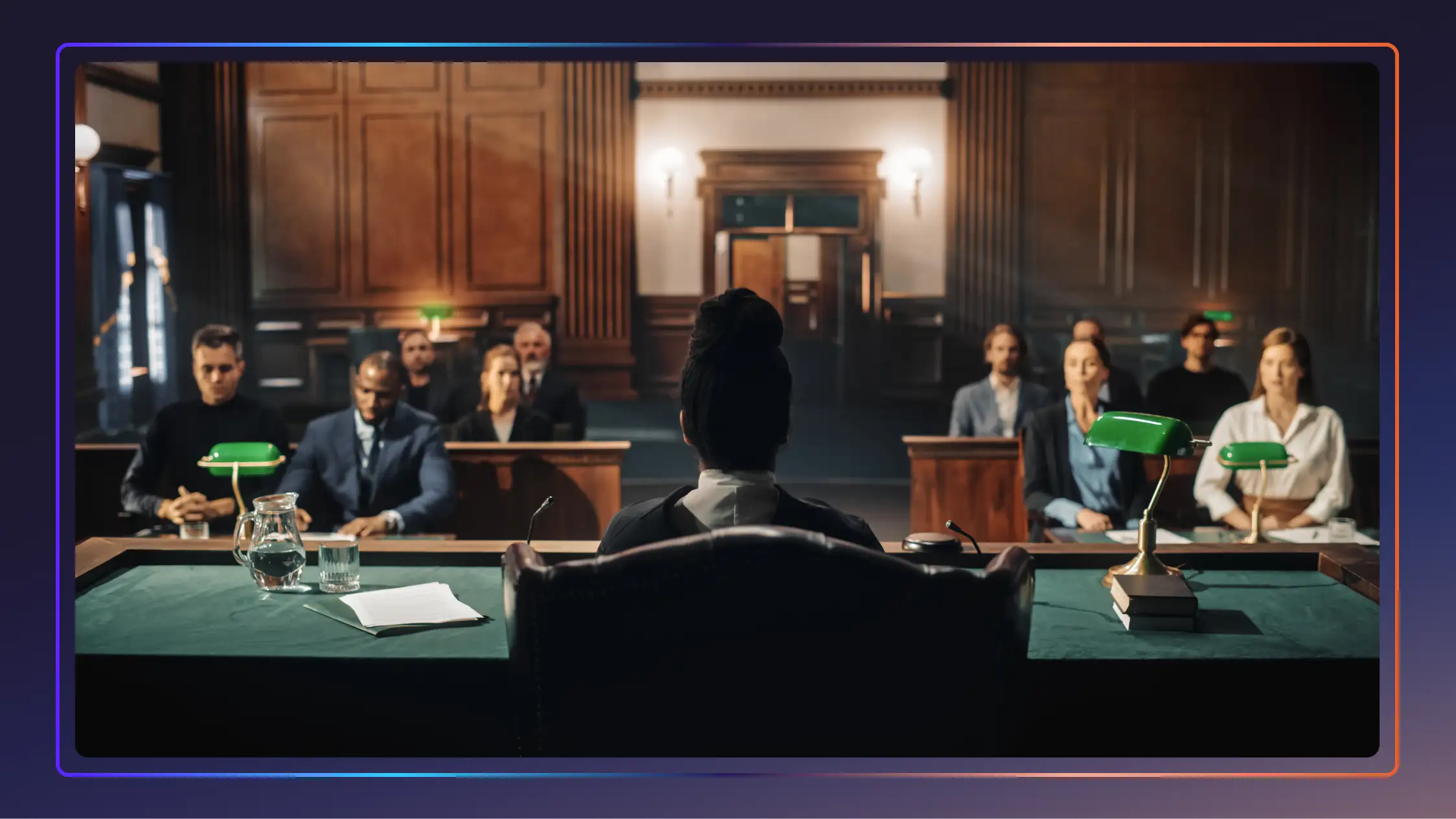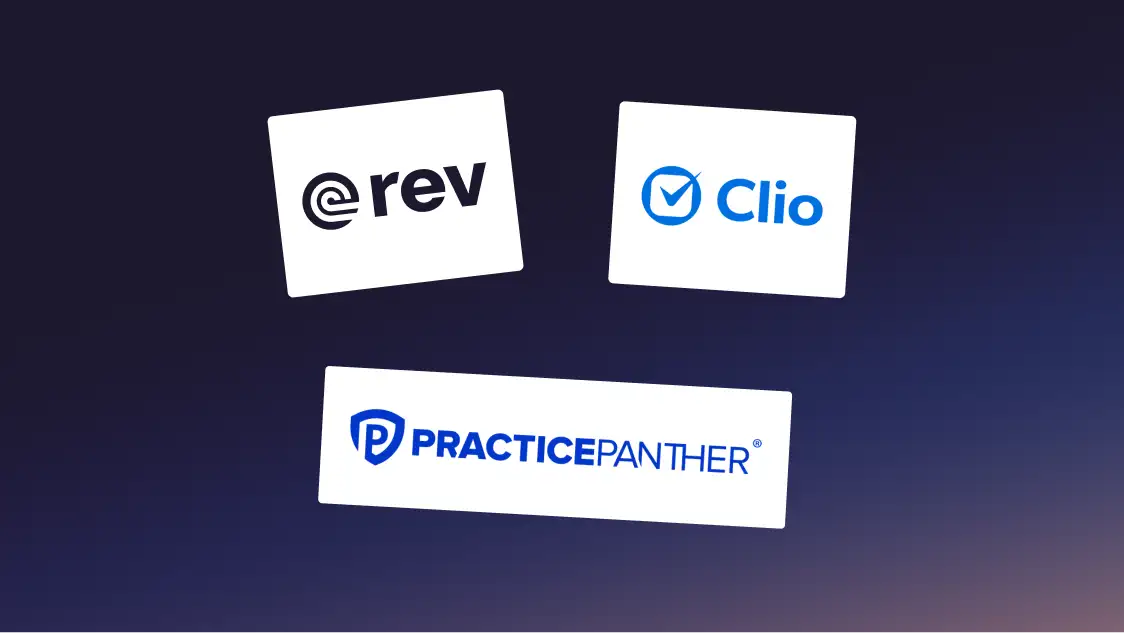What Is Legal Research?
Legal research can help you find and identify precedents and laws that can help you bolster your legal arguments. Let’s dive into the legal research process with the experts at Rev.
.webp)
Legal research is the process of finding applicable laws, regulations, and statutes that apply to (and support) the case you’re working on.
Typically, you’ll conduct legal research to find evidence, precedents, or court opinions that will back up the arguments that you’re making or the motions you’re filing in your current work. You may also need to conduct research to make sure you’re giving clients accurate information or providing the most viable legal analysis and guidance.
To get started, you’ll need to first develop a comprehensive view of the information you’re trying to find so you can locate the best available documents. Basically, you need to look at your case and answer the who, what, why, and where, so you can then nail down what information you need to find to back up your arguments.
Let’s dive into the legal research process including the most crucial steps and legal research tools that can make it easier.
When Legal Research is Conducted
You’ll conduct case law research when you’re trying to find support for a case you’re working on or to answer a client’s query. However, it can be conducted at any time throughout legal proceedings or client interactions, as you may need to find new precedents, laws, or court decisions to back up arguments you make or answer questions as they arise.
Legal Research and Analysis in Four Steps
Now that we’ve covered what legal research for attorneys is, let’s focus on the steps you should take to make sure you’re doing it right.
1. Analyze Your Case
The first thing you should do is nail down the specifics of your case. If you try to conduct external legal research before you know exactly what you’re looking for, you’re likely to spend a lot of unnecessary time looking for things that aren’t relevant. So, make sure you know your case or client backward and forward before you start trying to find supporting information. That way you can pinpoint that specific legal issue you’re trying to answer and look only for things that will actually help you. Some questions you should answer before you begin researching:
- What are the facts of my case?
- What legal issue am I trying to solve?
- What legal jurisdiction should I be looking in?
- What tools do I have at my disposal for this research?
2. Find Primary and Secondary Resources
After you know what you’re looking for, you can start actually trying to find it. Usually, you’ll do this by finding a mix of primary and secondary legal resources. (Usually, though, you’ll focus on primary sources, as these are more direct and may be slightly more credible and applicable.) Primary resources establish what the current law is as it is written. Primary resources (also called binding sources) may include:
- Constitutions
- Case law
- Treaties
- Legislation
- Statutes
- Regulations
- Annotations
Secondary resources are explanations or summaries of laws or legal issues, but they do not actually express the law as it is written. They usually serve to give you more information or a better understanding of a particular legal query, or can sometimes even point you in the direction of a primary resource that you can use. Examples of secondary resources include:
- Articles
- Journals
- Guides
- Legal encyclopedias
You may also come across supplemental resources in your research. These are resources that have been added to an interview, case file, or law as more information has been disclosed. You may find them as footnotes, addendums, or updates. These can help you determine the most recent information regarding a specific legal issue.
3. Double Check That Your Law Is “Good”
“Good” law refers to laws, information, or precedents that are still applicable. “Good” laws haven’t been overturned, struck down, or proven false, and are still in place in their applicable jurisdictions. That means that even an older case can be “good,” so long as it hasn’t been overturned. Some legal research websites — like KeyCite — will include a warning icon that a specific law has been overturned if it is no longer “good.”
Note: A precedent is a legal proceeding that happened before that will determine or influence your current issue. You can use the outcome of earlier, similar cases as a structure for your own needs. Precedents can be binding (meaning a court must follow them) or persuasive (meaning a court isn’t obligated to follow them but may choose to).
4. Compile Your Research
Once you’ve compiled a list of primary and secondary resources that are applicable to your case and haven’t been overturned or proven unconstitutional, you should compile them all into a workable document, memorandum, or other searchable database that will make the relevant information easy to find. To make compiling your research easier, you can utilize free software for organizing legal research that is available online, like PowerNotes and Casemap.
Technology That Makes Research in Law Easier
No longer do attorneys need to comb through tomes, textbooks, and more for the case laws they need to find. Technology can step in to help you easily conduct your research. Some technology that can help make your legal research easier includes:
- Rev: A note-taking and meeting assistant service that can help you transcribe interviews, jot down notes, and organize your thoughts when conducting legal research.
- Dropbox: A cloud-based storage service where you can save relevant notes, case files, and more to keep them organized.
- Casemap: A cloud-based database software designed specifically to help law firms organize evidence for their cases.
- PowerNotes: An Internet extension that allows you to save, annotate, and organize PDFs with a single click, then lets you organize your information.
- Fastcase: A database for people working in the legal field that contains legal precedents, case files, laws, and more, and can be searched with relevant keywords.
- MyCase: A one-stop shop for law firms to keep track of client information, case information and files, and billing.
- FindLaw: A consumer or business-focused database of legal precedents and information that law firms can also use.
- Westlaw: A Thomson-Reuters tool that law firms can use to find and gain access to legal documents, laws, case files, etc.
- Casetext: A legal research tool that harnesses the power of AI to help you find the legal research documents you need.
- Google Scholar: A free Google tool that you can use to search through textbooks, articles, and other scholarly documents to lay the groundwork for your research.
AI has also become a trend in the legal field. Many legal research software options are turning to artificial intelligence to make work easier, quicker, and more efficient. However, AI use can sometimes cause safety and security concerns.
As an attorney, we know that your data’s safety is of the utmost concern. Luckily, technology that works within the legal field will always take the necessary precautions to make sure that your data is encrypted and protected. (For example, here at Rev we use enterprise-grade security to protect your data).
Don’t Fight the Law
Legal research can be a lengthy and intimidating process. However, it doesn’t have to be. Rev can help you record and transcribe client meetings and interviews, and it can help you organize your thoughts, which can be extremely helpful in the research process. That way, you can establish your case needs and keep your files organized as you focus on what matters—your clients.
Learn more about how Rev can help law firms.













.webp)


